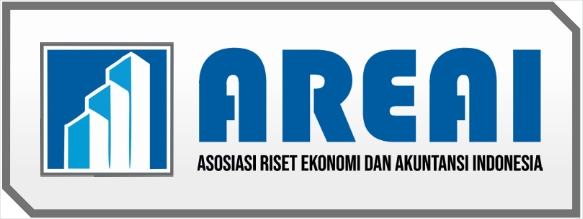Digital Transformation at Regional General Hospitals of Prof. dr. H.M. Anwar Makkatutu, Bantaeng Regency
DOI:
https://doi.org/10.55606/iceb.v1i2.211Keywords:
Transformation, digital, hospital.Abstract
Hospitals need adaptation to environmental changes and demands that change rapidly and dynamically. Digital transformation contributes to reducing costs, increasing speed and transparency. The purpose of the research is to describe the implementation, identify the determinants and digital transformation strategies. The method uses a qualitative approach with informants from structural officials, heads of installations, staff, and patients with a total of 15 people. Data were obtained through interviews, observation, and documentation. The results showed that the hospital implemented digital transformation refers to the Generic Process Transformation Model Theory by adding cooperation in the operative stage. The reason for the dominant digital transformation is the need for officers and patients as well as superior services. Impacts include increasing speed, efficiency, transparency, and accountability. The determinant factors include officer competence, teamwork, market strategy, regulation, and cooperation. The dominant inhibiting factors are the comfort zone, sectoral ego, and lack of literacy. According to Albukhitan, there is an update on the digital transformation strategy with the appearance of working together and cultivating innovation.
References
Albukhitan, S. (2020). Developing Digital Transformation Strategy for Manufacturing. Procedia Computer Science, 170, 664–671. https://doi.org/10.1016/j.procs.2020.03.173
Bell, B. S., Lee, S., & Yeung, S. K. (2006). The Impact of eHR on Professional Competence in HRM: Implications for the Development of HR Professionals. Human Resource Management, 45, 295–308.
Buvat, J., Solis, B., Crummener, C., Aboud, C., Kar, K., Aoufi, H. E., & Sengupta, A. (2017). The Digital Culture Challenge: Closing the Employee-Leadership Gap. Digital Transformation Institute, 1–32.
Fenech, R., Baguant, P., & Ivanov, D. (2019). The Changing Role of Human Resource Management in an Era of Dgital Transformation. Journal of Management Information and Decision Science, 22(2), 176–180.
Ferbriaty, Revida, E., Simarmata, J., Suleman, A. R., Hasibuan, A., Purba, S., Butarbutar, M., & Saputra, S. (2020). Manajemen Perubahan Perusahaan di Era Transformasi Digital (A. Rikki (ed.); 1st ed.). Medan: Yayasan Kita Menulis.
Fischer, M., Imgrund, F., Janiesch, C., & Winkelmann, A. (2020). Strategy archetypes for digital transformation: Defining meta objectives using business process management. Information and Management, 57(5), 103262. https://doi.org/10.1016/j.im.2019.103262
Furtner, D., Prakash, S., Manmohan, S., Chew, S., Wong, H., & Setia, S. (2022). Digital Transformation in Medical Affairs Sparked by the Pandemic : Insights and Learnings from COVID ‑ 19 Era and Beyond. Pharmaceutical Medicine, 36(1), 1–10. https://doi.org/10.1007/s40290-021-00412-w
Hernaus, T. (2008). Generic Process Transformation Model: Transition to Process-based Organization. Working Paper Series: Paper No. 08-07, 385(08), 1–16.
Jones, M. D., Hutcheson, S., & Camba, J. D. (2021). Past, present, and future barriers to digital transformation in manufacturing: A review. Journal of Manufacturing Systems, 60(March), 936–948. https://doi.org/10.1016/j.jmsy.2021.03.006
Kadjatmiko. (2003). Perspektif Dan Heuristik Transformasi Organisasi. In Usahawan: Vol. 12 TH XXXI (pp. 34–40).
Kraus, S., Schiavone, F., Pluzhnikova, A., & Invernizzi, A. C. (2021). Digital Transformation in Health Care: Analyzing the Current State-of-Research. Journal of Business Research, 123, 557–567. https://doi.org/10.1016/j.jbusres.2020.10.030
Leonardsen, A. L., Hardeland, C., Helgesen, A. K., & Grøndahl, V. A. (2020). Patient experiences with technology enabled care across healthcare settings- a systematic review. BMC Health Services Research, 20(779), 1–17.
Mooij, M. De, Foss, O., & Brost, B. (2022). Integrating the experience : Principles for digital transformation across the patient journey. Digital Health, 8, 1–7. https://doi.org/10.1177/20552076221089100
Purcărea, T. V. (2016). Creating the ideal patient experience. Journal of Medicine and Life, 9(4), 380–385. https://doi.org/10.22336/jml.2016.0411
Sajadi, H., Sajadi, Z., Sajadi, F., Hadi, M., & Zahmatkesh, M. (2017). The comparison of hospitals’ performance indicators before and after the Iran’s hospital care transformations plan. Journal of Education and Health Promotion, 6, 1–6. https://doi.org/10.4103/jehp.jehp
Sembiluh, D., & Sulistiadi, W. (2022). Analisis Implementasi Pemasaran Digital di Rumah Sakit pada Pandemi COVID-19: Literatur Review. Media Publikasi Promosi Kesehatan Indonesia (MPPKI), 5(3), 224–232. https://doi.org/10.56338/mppki.v5i3.2135
Sisca, Simarmata, H. M. P., Grace, E., Purba, B., Dewi, I. K., Silalahi, M., Fajrillah, Sudarso, A., & Sudarmanto, E. (2021). Manajemen Inovasi (J. Simarmata (ed.); 1st ed.). Yayasan Kita Menulis.
Sofianto, A. (2020). Inovasi Layanan Berbasis Teknologi infromasi pada Rumah Sakit sebagai Bentuk Reformasi Birokrasi. Jurnal Litbang Provinsi Jawa Tengah, 18(1), 81–102.
Sutrisno, E. (2018). Budaya Organisasi (5th ed.). Jakarta: Prenadamedia Group.
Tanniru, M., Khuntia, J., & Weiner, J. (2018). Hospital Leadership in Support of Digital Transformation. Pacific Asia Journal of the Association for Information Systems, 10(3), 1–24. https://doi.org/10.17705/1pais.10301
Verhoef, P. C., Broekhuizen, T., Bart, Y., Bhattacharya, A., Qi Dong, J., Fabian, N., & Haenlein, M. (2021). Digital transformation: A multidisciplinary reflection and research agenda. Journal of Business Research, 122(July 2018), 889–901. https://doi.org/10.1016/j.jbusres.2019.09.022
Verina, N., & Titko, J. (2019). Digital transformation: conceptual framework. Proceedings of 6th International Scientific Conference Contemporary Issues in Business, Management and Economics Engineering ‘2019. https://doi.org/10.3846/cibmee.2019.073
Wang, Y., Kung, L. A., Wang, W. Y. C., & Cegielski, C. G. (2018). An integrated big data analytics-enabled transformation model: Application to health care. Information and Management, 55(1), 64–79. https://doi.org/10.1016/j.im.2017.04.001
















